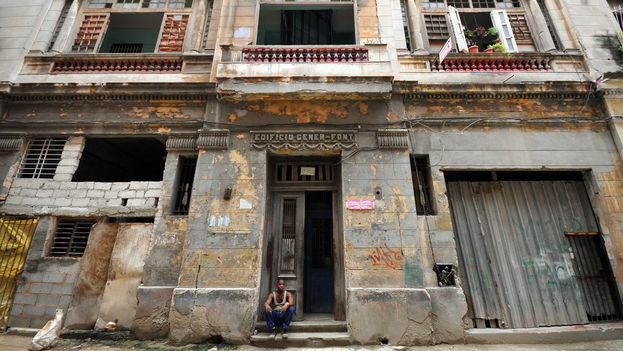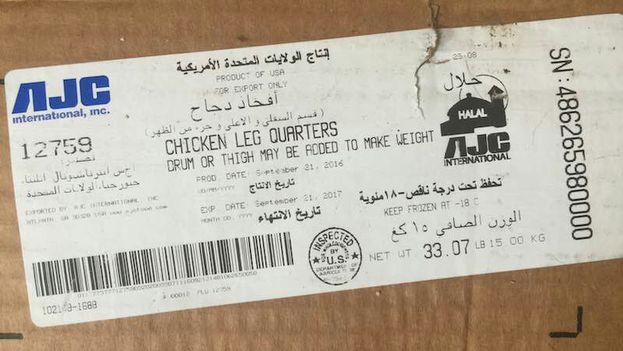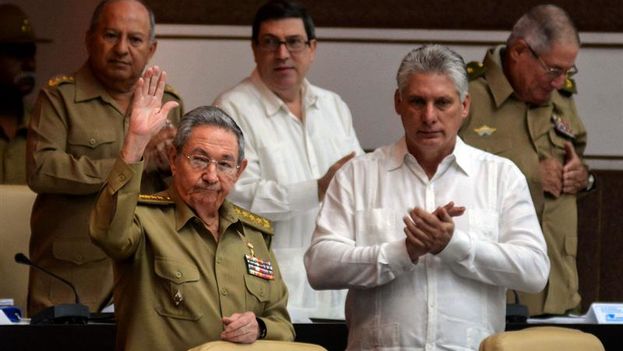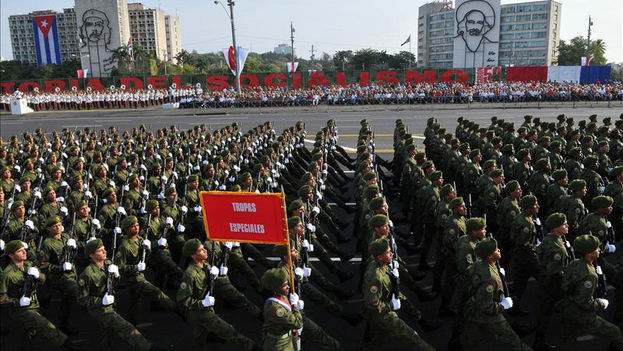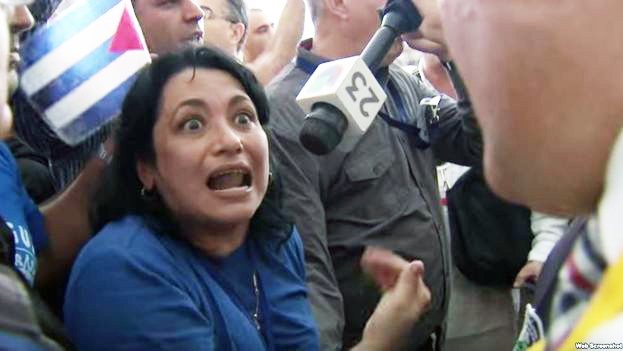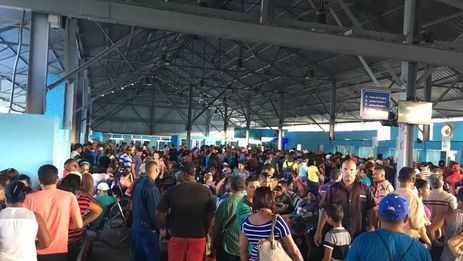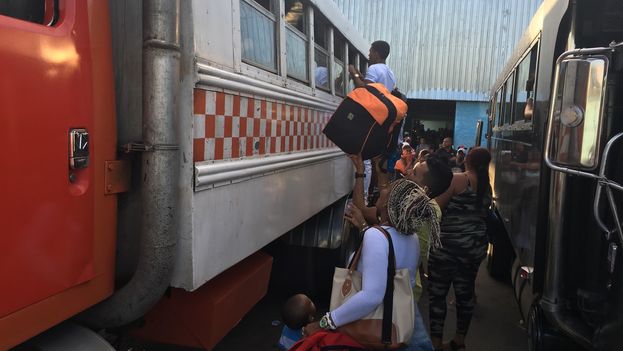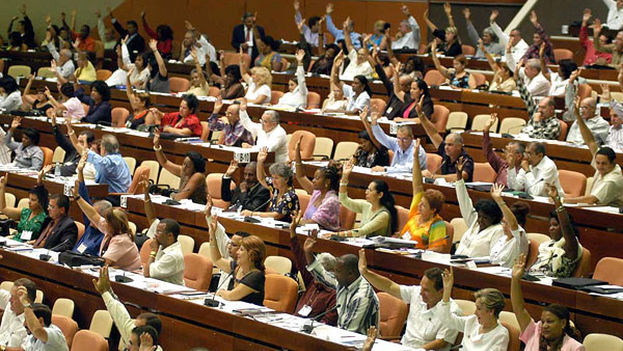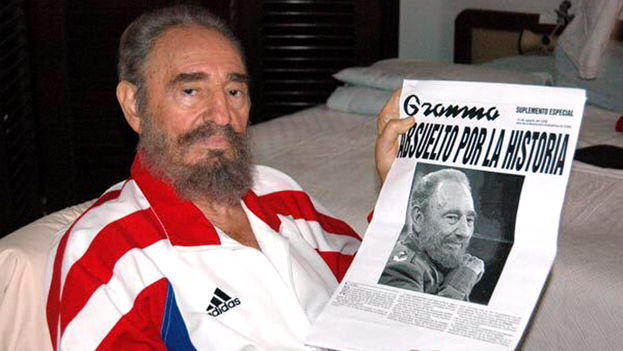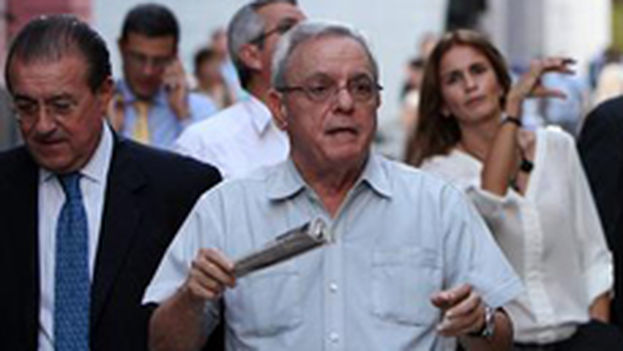
14ymedio, Mario Penton, Miami, 30 December 2016 — “This is the last thing the ship brought,” you hear a young man say, to refer to one of the most recent products imported and sold on the black market in Havana. Being made abroad is synonymous with quality for many Cubans despite attempts to boost local production through state enterprise in a socialist model.
Decades have passed since the first time Cuba’s rulers said it was necessary to replace imports and increase local production to develop the country, a matter that the executive, presided over by the Castro brothers, has suspended year after year.
For the economist Omar Everleny Pérez, one of the gurus of the national economy, this is a fundamentally “ideological” issue. continue reading
“If the State would prefer to avoid paying the Vietnamese in dollars and allocate at least half of those resources to finance domestic production, it would not be necessary to import rice”
“If the state would prefer to avoid paying the Vietnamese in dollars and allocate at least half of those resources to finance domestic production, it would not be necessary to import rice,” Perez says.
However, Raúl Castro – recognizing that Cuba entered a recession this year, with a 0.9% drop in its gross domestic product – once again hopes to salvage the economy using the same formula that has failed for decades.
“It will be necessary to fulfill three decisive premises: to guarantee exports and timely collection of payments, to increase the national production to replace imports, and to reduce all nonessential expenses,” said Castro before more than 600 deputies in the National Assembly.
Exhortations to reduce imports began almost at the same time as the revolutionary government. The phrase can be found over and over in the speeches of the top leaders, but the figures published by officialdom show that, over and over, it has remained just words.
“Stimulating development and diversification of exports and taking advantage of opportunities to replace imports,” is reflected in the document Theses and Resolutions of the First Congress of the Communist Party in 1975.
In the documents of the Second Congress, celebrated in 1980, the same recommendations can be read almost verbatim, which remain unmet and are reformulated at the next Congress in 1986.
“The essential problem of the country’s economy in the five-year period 1981-1985 was that, although we had more than acceptable growth, it was insufficient where we needed it most, that is, in the export of goods and services and in the replacement of imports,” states the conclusive document of the Third Congress.
“When production increases often there is also an increase in the need to import intermediate products necessary for this production, such that it does not necessarily end up positively affecting the global figure for imports.”
Replacing imports is not a Cuban invention. It is a trade policy based on the premise that a country should try to reduce its dependence on the outside world through the development of its local industry, and it was an ideology in vogue in a post-war Latin America that sought to industrialize third world countries and promoted protectionism.
However, as the Cuban economist Antonio F. Díaz explains in a research paper at the University of Havana on the measurement of the effect of replacing imports (2015), it is not simply a matter of dispensing with imports to develop the local industry.
“It is a complex process,” explains Díaz, who states that the government’s progress in replacing imports cannot be effectively measured because of the absence of official statistics.
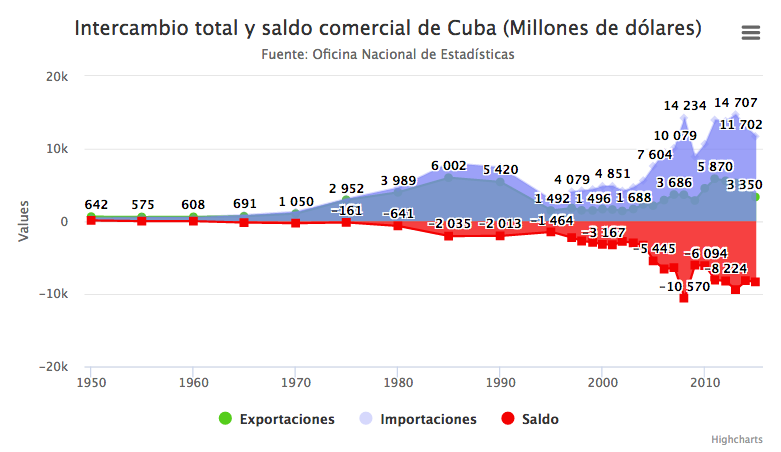
“There has been growth in many of the sectors where there is the attempt to replace imports, but when domestic production increases, often there is also an increase in the need to import intermediate products necessary for this production, such that it does not necessarily end up positively affecting the global figure for imports,” he explains.
“Imports are always going to grow, as happens in all countries, but their replacement [with domestic products] as an economic policy is effective when economic growth is greater than the growth in imports,” the expert explains.
Cuba’s balance of trade over the last decades has shown a trend of increasing deficits, which accelerated in 2008 when the balance of trade was negative 10.57 billion pesos.
In the economic policy guidelines promoted by Raul Castro in 2011 as a guide to “perfecting socialism,” the replacement of imports is mentioned 20 times. The term is revisited in the update of those guidelines for the period 2016-2021.
The reduction of the immense Venezuelan subsidy, as well as the fall in the demand of the export of Cuban services abroad, can not be compensated with the increase of the tourism and the remittances
The document calls for “promoting an accelerated and effective process of import replacement, with mechanisms that stimulate and guarantee the maximum possible use of all the capacities available to the country in the agricultural and industrial sectors and in services and human resources.”
In 2015, Cuba reported a decrease of more than 1.5 billion dollars in exports, motivated to a large extent by the deterioration of economic relations with Venezuela, the island’s main trading partner. Official Cuban statistics reveal that the exchange between both nations decreased by more than 3.0 billion dollars in 2015.
The reduction of the immense Venezuelan subsidy (valued at its peak in more than 100,000 barrels of oil a day, part of which Cuba re-exported), as well as the drop in demand for the export of Cuban services abroad – in healthcare and other sectors – cannot be made up for through increases in tourism (3.8 million visitors) and remittances sent to Cubans on the island from family and friends abroad (more than 3.0 billion dollars).
For now it will be necessary to wait for the postponed plenary session of the Central Committee of the Party, originally scheduled for December 2016. The Central Committee must approve the Conceptualization of the Economic and Social Model and an Economic Development Plan to the Year 2030, in which surely the exhortation will be repeated to replace imports and strengthen local industry.

